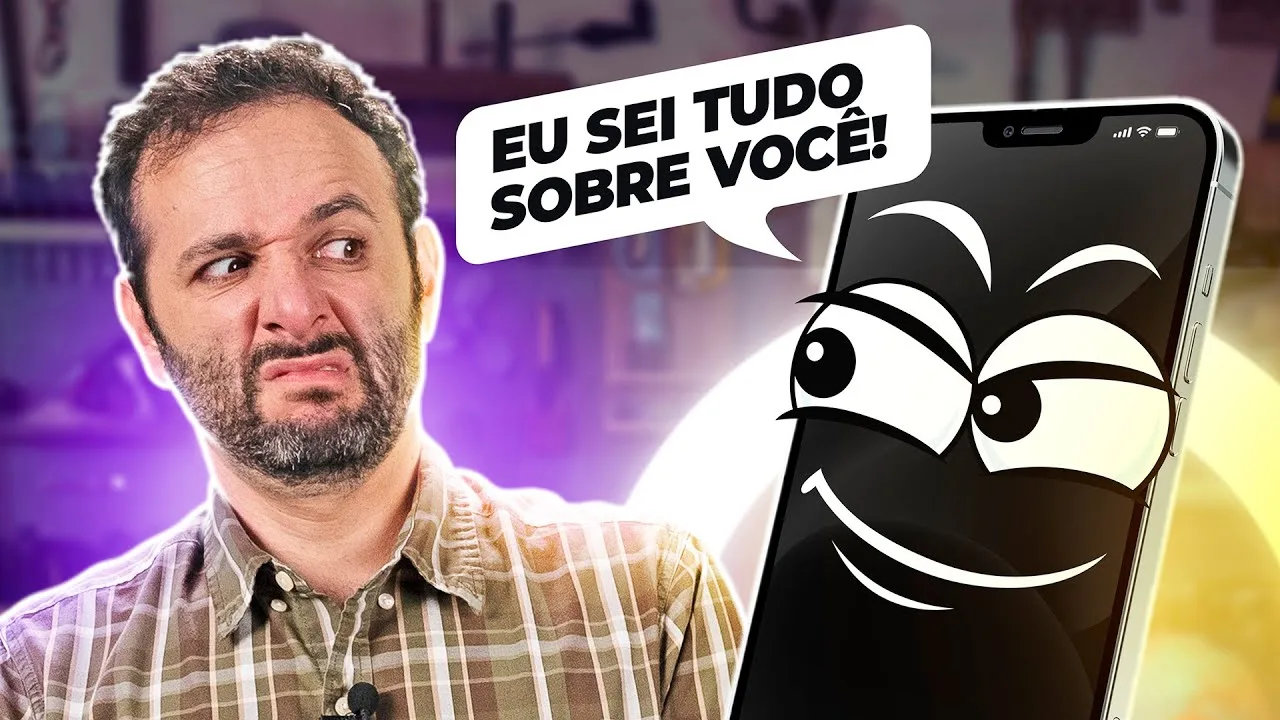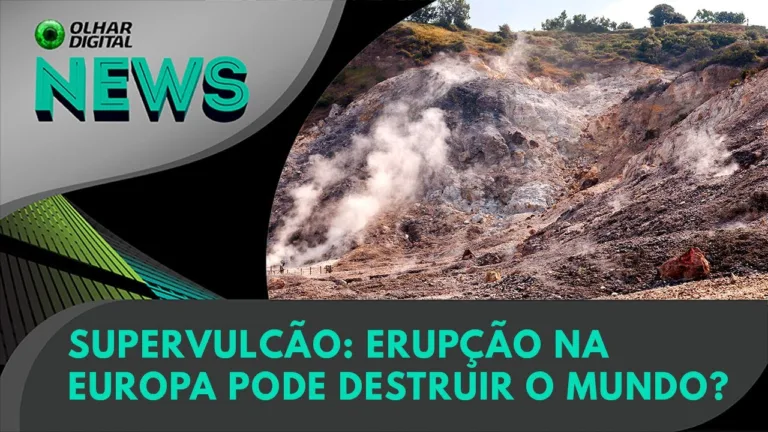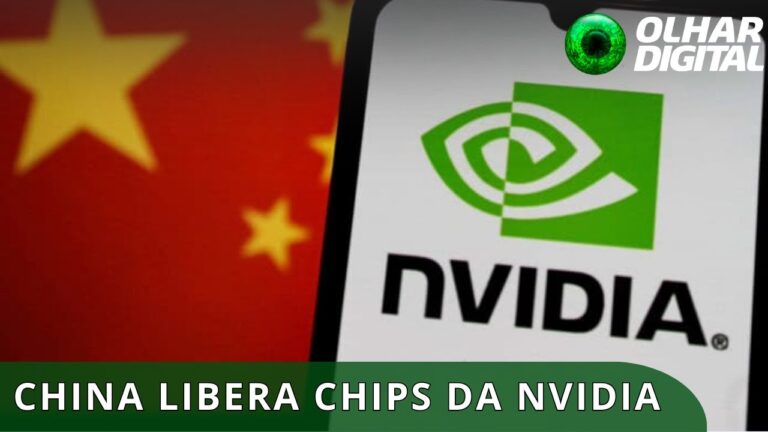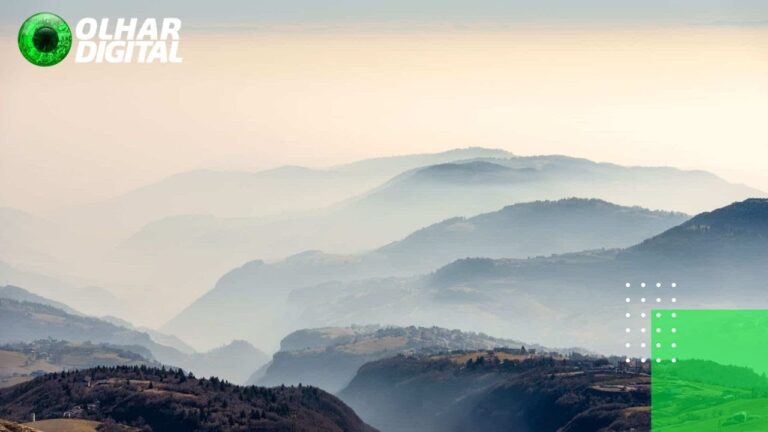O QUE INTERNET SABE sobre VOCÊ (e você NEM IMAGINA)
Do you have any idea how much your cellphone knows about you? What does the internet Know about you? Do you know is itmore than you know about yourself? Come with me For a walk around town so we can find out. Do you know the difference between data and information? Today we are going to see how your cell phone data becomes information on the internet And some things you can do to control this access. And for that, I'm going to split myself in two. I'm going to go around town generating data from my cell phone, and I'm going to stay Here in the studio collecting that data and seeing what I can find out about you. I mean, about me… About us, right? Now we are going to explore the world of Big Data. Big data, that is, this gigantic sea of data and information that ends up on the internet And that are generated from mobile devices, like this one. Or on your computer while you use the programs and browse the internet. This is another episode of our SuperTech series sponsored by Petrobras in which we Dive deep into some super technology that will transform… In fact, it is already transforming the world. First of all, we need to understand the difference between data and information. In Portuguese, data is dado, same name of dice, that little cube that we play. Data, In our case, is everything that is generated from a sensor or a sense. And, yes, the cell phone has a bunch of sensors that work pretty much the same way As our senses and can generate thousands of data in a single day. The most common ones that you can imagine are the camera, the microphone, the wi-fi Receiver… but there are much cooler things. The accelerometer, for example, will measure whether I'm accelerating forwards, backwards, up or down. The gyroscope measures whether I'm turning. So when the car takes a turn, it's the gyroscope that senses it. We also have a compass, which it is calling the geomagnetic field here, but which Measures where the Earth's magnetic field is. So it knows where the phone is pointed. And the data is this bunch of numbers that it's generating here all the time. And now I'm going to connect one more of its sensors, which is the GPS. It's the One for location. GPS basically works with three numbers: latitude, which measures
How far we are from the equator and whether we are north or south; longitude, which Is the distance from the Greenwich meridian east or west; and the altitude, which Is the height that we are in relation to sea level. This little program here gives our speed, but the speed is calculated from the other numbers. Let's start recording our GPS. My cell phone is already generating a lot of data While I'm driving. Every second, it registers those three coordinates and sends them to the server. I'm receiving the GPS data generated by the other Iberê. And you can see that looking at these data, they don't tell me anything. So now let's start turning this data into something useful, into something that's good for something. Turn that data into information. I'm going to plot a graph here where the X axis is longitude, and the Y axis is latitude. There we go! That weird little blue snake that's showing up there is the route he's taking, but Just looking at the route like that, you don't have the slightest idea where the car is going. So now let's play on Google Earth which will show you exactly where in the city he is. There we go! Here in the Morumbi neighborhood, passing in front of a park, which I think is Alfredo Volpi park. Now he's getting close to the Pinheiros river, this here is the Cidade Jardim Bridge. He entered Marginal Pinheiros, which is one of the biggest roads Here in São Paulo, which I showed you on that giant bike ride I put on the vlog. What you can see here at the side that looks like a racecourse is a racecourse, it's The Jockey Club, it's where the horses run. Now he's going under the Eusébio Matoso bridge, under the Cidade Universitária bridge, On the left side of the image, where everything is green, there's a kind of giant Green lake, this lake is the USP Raia Olímpica. And now he has entered the Cândido Portinari park, I think. So, answering that question, data is a number captured by the sensor. It's the dry, Raw, unprocessed stuff. And information is worked, processed data that manages to tell us something. And you can use a lot of data together to find out a lot more. And that's where Big Data comes in. I stopped here at Cândido Portinari park, I'm going to take a walk here, but, like Me, several other people may have their GPS turned on. And all these GPS data together Can generate information that is very useful for us. I went on Google Maps, which Is different from Google Earth, okay? Google Earth is more for geography, Google
Maps is more for driving, getting information… and we go to Cândido Portinari park. You will see that it has something to do with this GPS data. So, when we open it here, it's saying general information about the park, where it Is, what time it opens, what time it closes… and here's a movement graph of how Many people are in the park at the moment. And how is this graph generated? Exactly, with the GPS data of the people who are there, of Iberê who is there walking Through the park and showing that at this moment he is one of the people who are Making this park have some people in it. It's half empty right now compared to average. And it's not just Cândido Portinari Park, you can look for several other places in the world, here in São Paulo there Are thousands of places that will have that graph of how many people are there at That moment and, historically, how many people are there at each time. So, now we Can understand why this is called Big Data. Imagine that each person who enters The park is going to walk around and generate a thousand lines of data like the ones I showed in the table. Over the course of a year, how many people visit this park? Like, 1 million? each person generates 1,000 lines of data? It's never-ending. No one would ever be able to write this down by hand, that's why it's Big Data, a lot of data. And as you might have guessed, for all this to happen, we need a lot of sensors spread About, which in the case we are analyzing today are the GPS sensors, this needs to Be connected to a server, the people there strolling in the park are connected to the internet. Afterwards, a very powerful computer needs to analyze this mountain of data to extract some information that is good for us. This is what will happen with these traffic applications, like Waze, for example, They will measure the speed I'm going along this street, and they can measure the Speed of other cars as well because they are also using Waze. With these measurements, they know if the traffic on this street is really slow like Now, for example, when I'm practically stopped. And with that, they're able to suggest better routes where they know the cars are going fast. It's really crazy to think that people turn on Waze to find out which is the best Route, but when they do that, they're providing data, they're contributing to making It possible to do the calculations to find out which is the best route. It's Big Data happening. There's another really cool app for those who don't use a car, which is Moovit. You put where you are, you put where you want to go and it will tell you which public transport you can use to get there.
I put here in Moovit exactly the same route that Iberê did by car. So, leaving here from Vinícius de Moraes square, when he started, he has to walk a Little bit, and he says that the bus will pass in 2, 4 and 11 minutes, that is, there Are three buses that he can take, and the first one passes in two minutes. The craziest thing about this is that this is really real-time information. It's not a timetable it copied from the city's website. No, this bus really will go by in 2 minutes. The question is: there is no GPS on the bus, the bus company is contributing to this data. How does it know then? The same way that Waze does. There are other people who are using Moovit, so, on these buses there are people who Have the app turned on, and it knows exactly where the bus is going. Plus, when you get on the bus, it tells you when to get off, so you'll leave the app On when you're on the bus because you want to know when to get off. And by leaving the app on, you contribute to generating data that will help other People take the same bus. And logically when we talk about Big Data, it's not just Data generated by GPS on cell phones. Now, in the coronavirus pandemic, for example, We knew how many cases there were in each city, how old the people were, whether They were hospitalized or not, how many had died… and this is super important to be able to fight the disease. And there is Big Data even at the bottom of the ocean. Petrobras, using super computers, processes millions of data that are captured by Underwater sensors that are searching the sea using sound waves, just like bats and dolphins do. After combining all this data, they can increase the probability of finding new pre-salt oil deposits at a depth of 1800 meters. And Petrobras went further. Using Big Data, it draws the well in three dimensions and shows how it behaves as The oil is being extracted and adds another dimension, time. Take a look at how this happens in that video we recorded about seismic. There it Becomes clear how powerful this Big Data technology is. But we started the video By saying that the internet knows more about you than you do. And, so far, we've only given examples of how you can contribute to generating general Data, data that serves everyone and not about a single individual. And that's where the second layer of Big Data comes in. The moment we manage to gather so much information about so many people, we can begin To deduce the behavior of each one. For example, looking at a person's GPS data,
You might find out that every Tuesday and Thursday he or she goes to a gym. And Then you combine this data with the person's age, their weight, what other places They go to, if they go to a specific mall, for example, who their friends are… And taking all this data, the artificial intelligence combines it with data from Other people and sees that this person has a certain profile, they may be in a particular Income range, they may be a person who wants to lose weight, for example, it knows If this person is likely to have children or not. And if these people like similar things, it's very likely that this guy wants to buy A pair of shoes that most of these people have. And that's how we get personalized ads on the internet because companies really know what we like. And that can be a cool thing, because you're not going to get a bunch of ads that Have nothing to do with you, but at the same time they might know things about you That you suddenly wouldn't want to tell them. I'm talking about ads, but that goes for other things, for example, when you ask for A bank loan, get your car insurance, sign up for a health plan… or they can even Find out what your favourite food is, your political alignment, your favorite team. You realized that this topic is controversial, right? So I'm going to tell you a story about how computers can invade your privacy without you wanting them to. In the United States there was a supermarket chain that recorded all the purchases That customers made, more or less like here, you give your tax number, make a purchase And the supermarket knows that you bought those things. But one time they decided to do ads for pregnant women and they wanted to know who Was pregnant, they started to notice that pregnant women bought certain products. And it wasn't products like diapers, pacifiers, anything like that, no. Some specific Cream doesn't necessarily say that a person is pregnant. So, an artificial intelligence combined all the data, worked out who was pregnant And sent a discount coupon for products for pregnant women. And behold, one fine day, a furious man appears at the door of one of these stores, He was really angry because his daughter was getting promotions aimed at pregnant Women, but she wasn't pregnant. The manager didn't really know what to do because It wasn't a person working there that decided to send this coupon, it was the computer That did the calculations and sent it automatically. He apologized to the man and stopped sending the promotions. But after a while this man came back and he was the one who apologized to the supermarket Because his daughter was, in fact, pregnant.
That is, her family found out that she was pregnant because a computer told it and not her. All of that is just to show you that there's an issue around privacy here. When you share data, you don't know what information will be generated from that data. It may be that the machine on the other side knows more about you than you do, or your family. And let's be honest, if you use a cell phone, use a computer, most likely you are Generating data that goes to places you don't know about. And there are some very basic things you can do to reduce this a little bit, so you Can generate less data and have a little more privacy. If you don't want to share that data, that's your choice, there are some things you Can do that are pretty basic that make you send out a little less information. I'm Going to say three things, okay? The first is when you install an application on Your cell phone, it will ask if you want to give access to certain things, give access To your microphone, give access to your location, give access to your photos… And most of the time, you can say no. And the app keeps working because it doesn't really need it. For example, you install a different camera, and it wants access to your microphone? You're only using it to take pictures, you don't need to authorize the use of the Microphone or your location. And there is the second thing that is perhaps even More important. At the end of the installation, it will ask if you allow this access while using the application or always. This means that even when you are not using that app, it can collect your data. For example, if you've authorized the use of GPS, it may be picking up your location even when you're not using the app. And all that, in addition to increasing battery usage, increasing your internet usage, You're generating a lot of data that you didn't even think of. And the third thing with computers is that every time you browse the inernet, you Are generating a lot of information. What you're buying, what pages you're visiting, How long you stay on each page, etc. If you want to greatly restrict the data you Generate, you can open an incognito tab in your browser. When you open an incognito Tab, you are not logged onto any sites, so if you go on a site where you have a password And everything, it doesn't know it's you until you log in, it doesn't have your history And it doesn't record your browsing history in the browser, cookies, which are the Little files that you receive that record your activities on the internet, when you Close the tab, they disappear. In short, these millions of data being generated And stored and processed all at the same time bring up a series of controversial Issues that we have to discuss, a series of precautions that we have to take… but
There are also a series of cool things that are born from that, for example, you Know where there is traffic, you know where it's full, you can receive more cool Advertisements that have to do with you, you can share your information that helps Other people and that brings benefit back to you. If you want to find out more about these new technologies that are emerging, what's Behind them, how they work, what are the possibilities, the last episode we recorded Is about augmented reality, which is different from virtual reality. Go check it Out so you can find out what the difference is. Sponsored by Petrobras.







